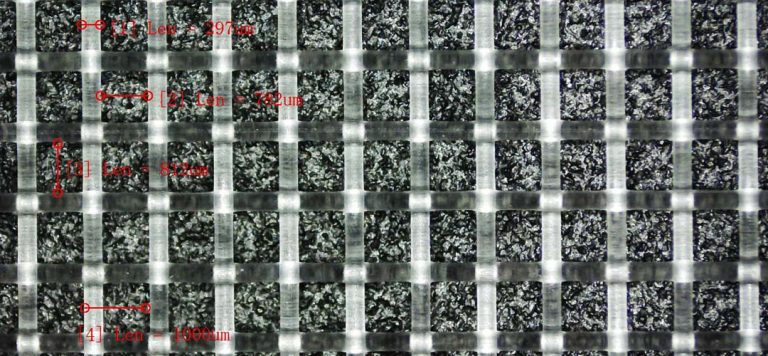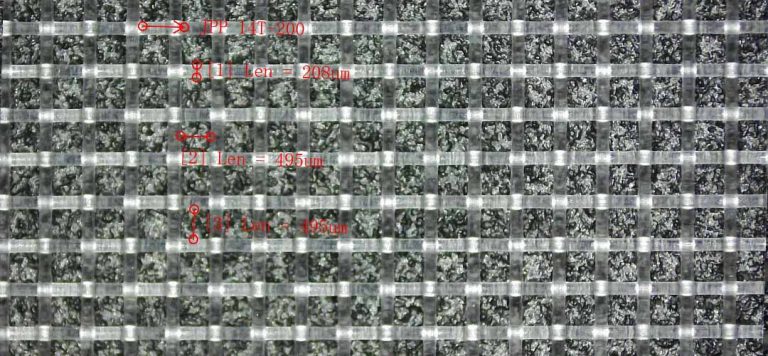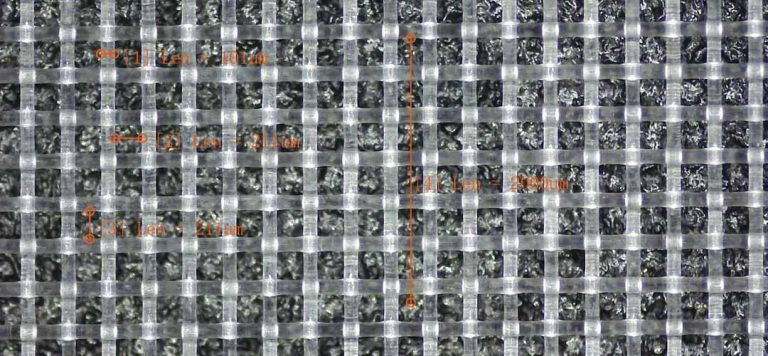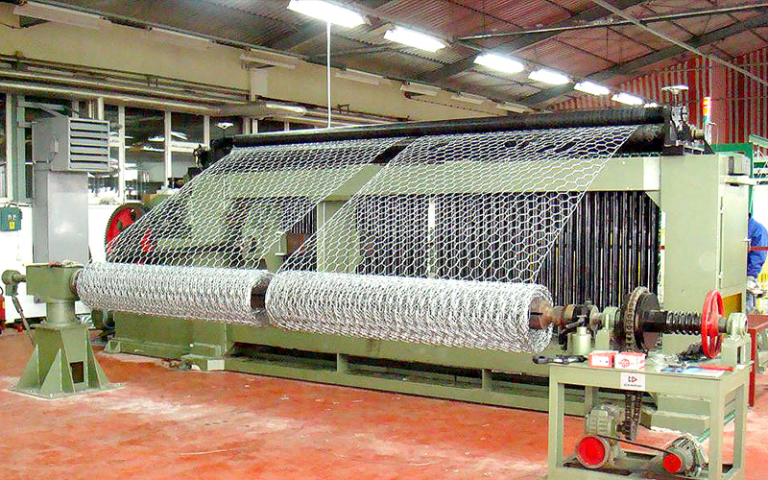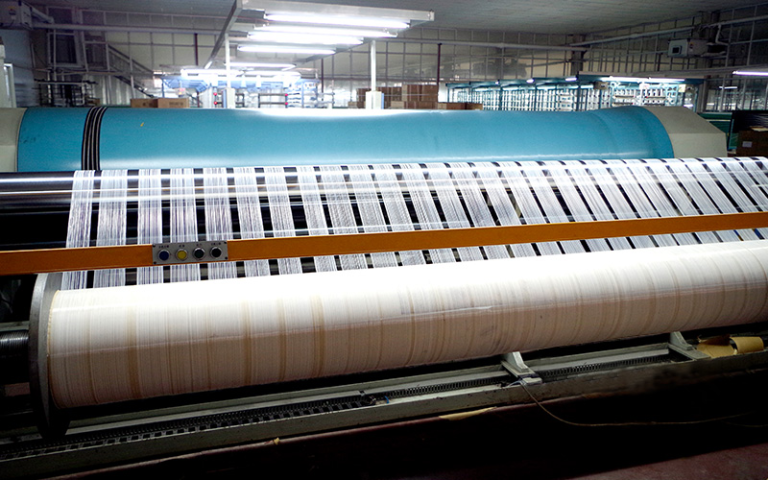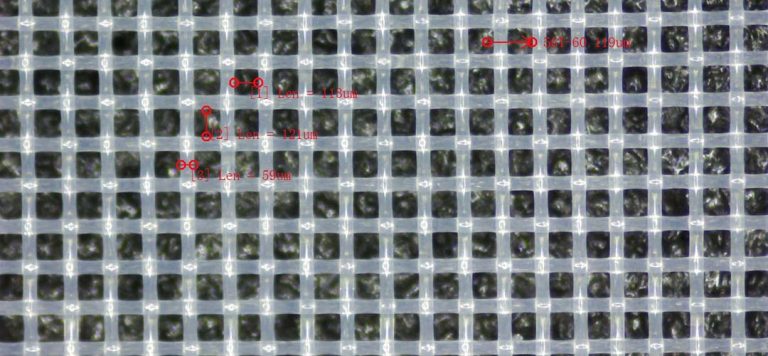Table of Contents
Benefits of Using nylon mesh for Water Filtration
Nylon mesh is a versatile material that has found numerous applications in various industries, including water treatment. Its unique properties make it an ideal choice for filtration purposes, offering several benefits over other materials. In this article, we will explore the advantages of using nylon mesh for water filtration and its applications in the field of water treatment.

One of the key benefits of using nylon mesh for water filtration is its durability. Nylon is a strong and resilient material that can withstand high pressures and temperatures, making it suitable for use in demanding filtration applications. Its resistance to abrasion and chemicals also ensures that the mesh maintains its integrity over time, providing long-lasting filtration performance.
Another advantage of nylon mesh is its flexibility. Nylon can be easily molded into different shapes and sizes, allowing for customization to meet specific filtration requirements. This flexibility makes nylon mesh suitable for a wide range of filtration applications, from large-scale industrial processes to small-scale residential water treatment systems.

Nylon mesh also offers excellent filtration efficiency. The fine pores of the mesh can effectively capture particles and contaminants in water, ensuring that the filtered water meets quality standards. The uniform structure of nylon mesh allows for consistent filtration performance, providing reliable results with each use.
In addition to its durability, flexibility, and filtration efficiency, nylon mesh is also easy to clean and maintain. The smooth surface of nylon makes it resistant to clogging, reducing the frequency of cleaning and maintenance. This ease of maintenance not only saves time and effort but also ensures that the filtration system operates at peak performance.
The applications of nylon mesh in water treatment are diverse and widespread. One common use of nylon mesh is in reverse osmosis systems, where it is used as a pre-filter to remove large particles and debris from the water before it enters the membrane. Nylon mesh is also used in sediment filters to trap sediment and suspended solids, improving the clarity and quality of the filtered water.
Nylon mesh is also used in activated carbon filters to enhance the adsorption of organic contaminants and improve the taste and odor of the filtered water. Its high surface area and uniform pore size distribution make nylon mesh an effective medium for adsorption, ensuring that the water is free from harmful substances.
In addition to its use in traditional filtration systems, nylon mesh is also employed in innovative water treatment technologies, such as membrane bioreactors and nanofiltration systems. These advanced systems rely on nylon mesh to provide efficient and reliable filtration, ensuring the removal of contaminants and pathogens from the water.
Overall, the benefits of using nylon mesh for water filtration are clear. Its durability, flexibility, filtration efficiency, and ease of maintenance make it a superior choice for a wide range of filtration applications. Whether used in traditional filtration systems or cutting-edge technologies, nylon mesh continues to play a vital role in ensuring the quality and safety of our water supply.
How Nylon Mesh Improves Water Quality
Nylon mesh is a versatile material that has found numerous applications in various industries, including water treatment. Its unique properties make it an ideal choice for filtration purposes, helping to improve water quality and remove impurities. In this article, we will explore the different ways in which nylon mesh is used in water treatment processes and how it contributes to ensuring clean and safe drinking water for communities.
One of the key advantages of nylon mesh is its durability and resistance to chemicals and abrasion. This makes it an excellent choice for filtration applications where the material is exposed to harsh conditions and needs to withstand frequent cleaning and maintenance. Nylon mesh can effectively trap particles and contaminants in water, such as sediment, debris, and microorganisms, ensuring that the water is free from impurities before it is consumed.
In water treatment plants, nylon mesh is commonly used in various filtration systems, such as sand filters, cartridge filters, and bag filters. These filters are designed to remove different sizes of particles from the water, ranging from large debris to microscopic contaminants. Nylon mesh is an effective filter medium that can capture particles of various sizes, ensuring that the water is thoroughly cleaned and safe for consumption.
Nylon mesh is also used in household water filtration systems, such as pitcher filters, faucet filters, and refrigerator filters. These filters are designed to remove impurities from tap water, such as chlorine, lead, and bacteria, improving the taste and quality of the water. Nylon mesh is an essential component of these filters, as it helps to trap contaminants and ensure that the water is clean and safe for drinking.
| Model | Mesh Count (/cm) |
Mesh Count (/inch) |
Thread Dia (um) |
Mesh Opening (um) |
Thickness (um) |
Weight (g/m2) |
| NL4/1950 | 4 | 10 | 550 | 1950 | 1100 | 307 |
| NL5/1500 | 5 | 13 | 500 | 1500 | 1000 | 318 |
| NL6/1267 | 6 | 15 | 400 | 1267 | 800 | 244 |
| NL7/1079 | 7 | 18 | 350 | 1079 | 700 | 218 |
| NL8/900 | 8 | 20 | 350 | 900 | 700 | 249 |
| NL9/861 | 9 | 23 | 250 | 861 | 500 | 143 |
| NL9/811 | 9 | 23 | 300 | 811 | 600 | 206 |
| NL10/750 | 10 | 25 | 250 | 750 | 500 | 159 |
| NL10/700 | 10 | 25 | 300 | 700 | 600 | 229 |
| NL12/583 | 12 | 30 | 250 | 583 | 500 | 191 |
| NL12/533 | 12 | 30 | 300 | 533 | 600 | 274 |
| NL14/514 | 14 | 36 | 200 | 514 | 340 | 142 |
| NL16/425 | 16 | 40 | 200 | 425 | 340 | 160 |
| NL20/350 | 20 | 50 | 150 | 350 | 255 | 113 |
| NL20/300 | 20 | 50 | 200 | 300 | 340 | 200 |
| NL24/267 | 24 | 60 | 150 | 267 | 255 | 135 |
| NL28/237 | 28 | 70 | 120 | 237 | 204 | 101 |
| NL30/213 | 30 | 76 | 120 | 213 | 204 | 110 |
| NL32/213 | 32 | 80 | 100 | 213 | 170 | 80 |
| NL36/178 | 36 | 90 | 100 | 178 | 170 | 90 |
| NL40/150 | 40 | 100 | 100 | 150 | 170 | 100 |
| NL43/153 | 43 | 110 | 80 | 153 | 136 | 70 |
| NL48/128 | 48 | 120 | 80 | 128 | 136 | 77 |
| NL56/119 | 56 | 140 | 60 | 119 | 102 | 50 |
| NL64/96 | 64 | 160 | 60 | 96 | 102 | 58 |
| NL72/89 | 72 | 180 | 50 | 89 | 85 | 45 |
| NL80/75 | 80 | 200 | 50 | 75 | 85 | 50 |
| NL100/57 | 100 | 250 | 43 | 57 | 73 | 46 |
| NL110/48 | 110 | 280 | 43 | 48 | 73 | 52 |
| NL120/48 | 120 | 300 | 35 | 48 | 60 | 37 |
| NL120/40 | 120 | 300 | 43 | 40 | 73 | 55 |
| NL130/42 | 130 | 330 | 35 | 42 | 60 | 40 |
| NL130/34 | 130 | 330 | 43 | 34 | 73 | 61 |
| NL140/36 | 140 | 350 | 35 | 36 | 60 | 43 |
| NL157/25 | 157 | 400 | 43 | 25 | 73 | 74 |
| NL180/20 | 180 | 450 | 39 | 20 | 66 | 68 |
| NL200/15 | 200 | 500 | 39 | 15 | 66 | 76 |
| NL220/10 | 220 | 550 | 39 | 10 | 66 | 84 |
| NL240/5 | 240 | 600 | 39 | 5 | 66 | 91 |
Another application of nylon mesh in water treatment is in wastewater treatment plants. Nylon mesh is used in filtration systems to remove solid waste and pollutants from wastewater before it is discharged into the environment. By filtering out contaminants, nylon mesh helps to protect water bodies from pollution and ensure that the wastewater meets environmental standards.

Nylon mesh is also used in swimming pool filtration systems to remove debris and impurities from the water, such as leaves, insects, and bacteria. By using nylon mesh filters, pool owners can maintain clean and clear water for swimming, ensuring a safe and enjoyable experience for swimmers.
In conclusion, nylon mesh plays a crucial role in improving water quality in various water treatment applications. Its durability, chemical resistance, and filtration capabilities make it an ideal choice for removing impurities from water and ensuring that it is safe for consumption. Whether in water treatment plants, household filtration systems, wastewater treatment plants, or swimming pool filters, nylon mesh is a versatile material that contributes to clean and safe drinking water for communities. By using nylon mesh in filtration systems, we can protect our water sources and ensure a sustainable future for generations to come.
Different Types of nylon mesh for filtration Applications
Nylon mesh is a versatile material that finds numerous applications in various industries, including water treatment. Its unique properties make it an ideal choice for filtration purposes, as it is durable, flexible, and resistant to chemicals and abrasion. In water treatment, nylon mesh is used to remove impurities and contaminants from water, ensuring that it meets the required quality standards for consumption or industrial use.
There are different types of nylon mesh available for filtration applications, each with specific characteristics that make them suitable for different types of filtration processes. One common type of nylon mesh used in water treatment is monofilament nylon mesh. This type of mesh is made from a single continuous filament, which gives it a smooth surface and uniform openings. Monofilament nylon mesh is ideal for applications where a high level of filtration precision is required, as it can effectively capture small particles and impurities from water.
Another type of nylon mesh commonly used in water treatment is multifilament nylon mesh. This type of mesh is made from multiple filaments twisted together, which gives it a more open and porous structure compared to monofilament nylon mesh. Multifilament nylon mesh is suitable for applications where a higher flow rate is required, as it allows water to pass through more easily while still capturing larger particles and contaminants.
In addition to monofilament and multifilament nylon mesh, there are also specialty nylon meshes available for specific filtration applications. For example, nylon mesh with a hydrophilic coating is used in applications where water repellency is a concern, as the coating helps to improve the wetting properties of the mesh and enhance its filtration efficiency. Nylon mesh with an antistatic coating is used in applications where static electricity can interfere with the filtration process, as the coating helps to dissipate static charges and prevent them from affecting the filtration performance.
Nylon mesh can be used in a variety of filtration processes in water treatment, including pre-filtration, membrane support, and sludge dewatering. In pre-filtration, nylon mesh is used to remove large particles and debris from water before it undergoes further treatment, such as reverse osmosis or ultrafiltration. Nylon mesh is also used as a support material for membrane filtration systems, where it helps to prevent membrane fouling and prolong the lifespan of the membranes. In sludge dewatering, nylon mesh is used to separate solids from liquids in wastewater treatment plants, allowing for the efficient disposal of sludge and the recovery of clean water for reuse.
Overall, nylon mesh is a valuable material for filtration applications in water treatment, thanks to its durability, flexibility, and chemical resistance. By choosing the right type of nylon mesh for a specific filtration process, water treatment facilities can ensure the efficient removal of impurities and contaminants from water, leading to cleaner and safer water for consumption or industrial use.
Case Studies on Successful Water Treatment with Nylon Mesh
Nylon mesh has become a popular choice for filtration in water treatment due to its durability, flexibility, and efficiency. This versatile material is used in a variety of applications, from industrial to residential settings, to ensure clean and safe water for consumption and other uses. In this article, we will explore some case studies that highlight the successful use of nylon mesh in water treatment processes.
One common application of nylon mesh in water treatment is in the filtration of suspended solids and contaminants. In a case study conducted by a municipal water treatment plant, nylon mesh filters were used to remove particles such as sand, silt, and debris from the water supply. The mesh effectively captured these contaminants, preventing them from entering the distribution system and ensuring that the water met regulatory standards for quality and safety.
Another case study involved the use of nylon mesh in the treatment of industrial wastewater. A manufacturing plant that produced chemicals and other products needed to remove pollutants and impurities from its wastewater before discharging it into the environment. Nylon mesh filters were installed in the plant’s treatment system to trap solids, oils, and other contaminants, allowing the water to be safely recycled or released in compliance with environmental regulations.
In a residential setting, nylon mesh filters have been used to improve the quality of drinking water. A homeowner who relied on well water for their household needs found that the water contained high levels of sediment and bacteria. By installing a nylon mesh filter at the point of entry, the homeowner was able to effectively remove these impurities, resulting in cleaner and safer water for drinking, cooking, and bathing.
Nylon mesh filters have also been employed in the treatment of swimming pool water. A recreational facility that struggled with maintaining clear and balanced pool water turned to nylon mesh filtration as a solution. By using mesh filters to capture dirt, debris, and algae, the facility was able to improve water clarity and quality, providing a more enjoyable swimming experience for patrons.
In each of these case studies, nylon mesh proved to be a reliable and effective filtration solution for a variety of water treatment challenges. Its ability to capture a wide range of contaminants, its durability and longevity, and its ease of maintenance make it a preferred choice for many applications. Whether used in municipal water treatment plants, industrial facilities, residential homes, or recreational settings, nylon mesh filters have demonstrated their value in ensuring clean and safe water for all.
As advancements in water treatment technology continue to evolve, nylon mesh is likely to remain a key component in filtration systems around the world. Its versatility, efficiency, and cost-effectiveness make it an attractive option for addressing the diverse needs of water treatment processes. By considering the successful case studies highlighted in this article, water treatment professionals and consumers alike can gain a better understanding of the benefits of using nylon mesh for filtration in various applications.
Future Trends in Nylon Mesh Filtration Technology
Nylon mesh has long been a popular choice for filtration in various industries, including water treatment. Its durability, flexibility, and chemical resistance make it an ideal material for capturing particles and impurities in water. As technology continues to advance, the applications of nylon mesh in water treatment are evolving to meet the growing demands for cleaner and safer water.
One of the key advantages of using nylon mesh for filtration in water treatment is its ability to effectively remove a wide range of contaminants, including sediment, debris, and even bacteria. The fine mesh size of nylon filters allows for efficient trapping of particles, ensuring that the water is thoroughly cleaned before being released back into the environment. This makes nylon mesh an essential component in the treatment process, helping to improve the overall quality of water.
In addition to its filtration capabilities, nylon mesh is also highly durable and long-lasting, making it a cost-effective solution for water treatment facilities. Unlike other materials that may degrade over time or require frequent replacement, nylon mesh can withstand harsh conditions and continue to perform effectively for extended periods. This not only reduces maintenance costs but also ensures consistent filtration performance, leading to better water quality outcomes.
As technology continues to advance, the applications of nylon mesh in water treatment are expanding to include more specialized filtration processes. For example, advancements in nanotechnology have enabled the development of nano-sized nylon mesh filters that can capture even smaller particles and contaminants. These filters are particularly useful in industries where ultra-pure water is required, such as in pharmaceutical manufacturing or semiconductor production.
Furthermore, the use of nylon mesh in combination with other filtration technologies, such as activated carbon or ion exchange resins, can enhance the overall efficiency of water treatment processes. By incorporating multiple filtration methods, water treatment facilities can achieve higher levels of purification and remove a wider range of contaminants, ensuring that the water meets stringent quality standards.
Another emerging trend in nylon mesh filtration technology is the use of smart sensors and monitoring systems to optimize filtration performance. By integrating sensors into the filtration system, operators can track key parameters such as flow rate, pressure, and particle size, allowing for real-time adjustments to improve efficiency and effectiveness. This level of automation not only streamlines the filtration process but also reduces the risk of human error, leading to more consistent and reliable water treatment outcomes.
In conclusion, the applications of nylon mesh for filtration in water treatment are continually evolving to meet the demands of a rapidly changing world. From its ability to effectively remove contaminants to its durability and cost-effectiveness, nylon mesh remains a versatile and essential component in the water treatment process. As technology advances, we can expect to see further innovations in nylon mesh filtration technology, leading to even cleaner and safer water for all.

